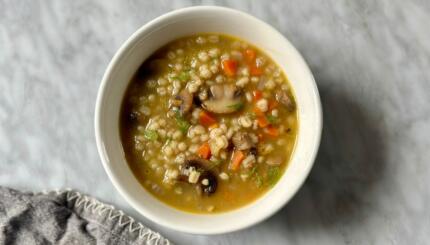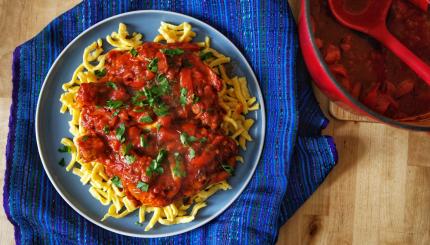A few years ago I came across a book called In Memory’s Kitchen, edited by Cara De Silva. The book collects recipes and food memories written by women imprisoned at the Czechoslovakian concentration camp of Theresienstadt. Though they were undernourished and starving, a group gathered to write a book of recipes and food memories to pass down to another generation. The recipes they included were for rich national foods of Czechoslovakia, Germany, and Austria, like fried noodles topped with raisins, cinnamon and vanilla cream, and traditional caramels from Baden Baden. Food was constantly a topic of discussion, though there was little to go around, and certainly none of the luxurious ingredients a person would need to make many of the cakes and treats included in the books. Discussing and sometimes arguing about the best recipes and methods of preparation for various delicacies was comforting to the women who were starving, and they called this “mouth cooking.”
The book is mind-boggling, not only because of its history, but also because it reminded me of the unbelievable conveniences of modern day cooking. One recipe called for whipping egg whites for half an hour until they get light and fluffy. In my life, I have only ever whipped egg whites with a pair of electric beaters, and the process takes a few minutes. As I skimmed over these recipes I thought a lot about how lucky I am, not just to live in a time where I can be free as a Jew, but also because there is so much decadence in my life, from the amount of food in my cupboards, to the appliances stacked in my closet.
Most of the recipes in “In Memory’s Kitchen” aren’t suitable for use today because they use measurements and ingredients that are difficult to decipher, and often have incomplete directions. But reading it you’re likely to crave classic European dishes like Billige Echte Judische Bobe, Jewish Coffee Cake, and Gefulllte Eier, German Stuffed Eggs. Go ahead, make a cake, using real cream. Enjoy every morsel.


